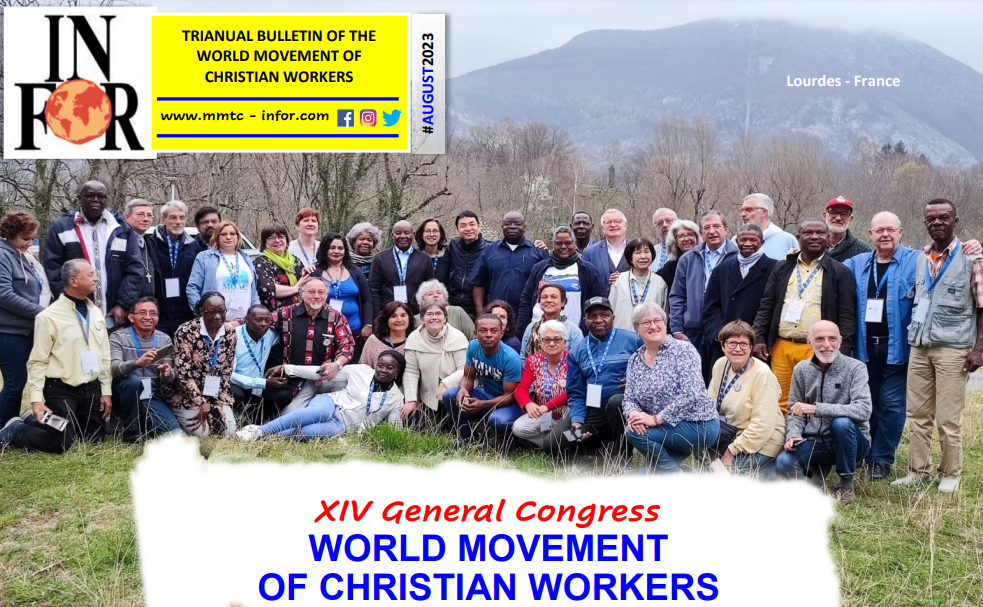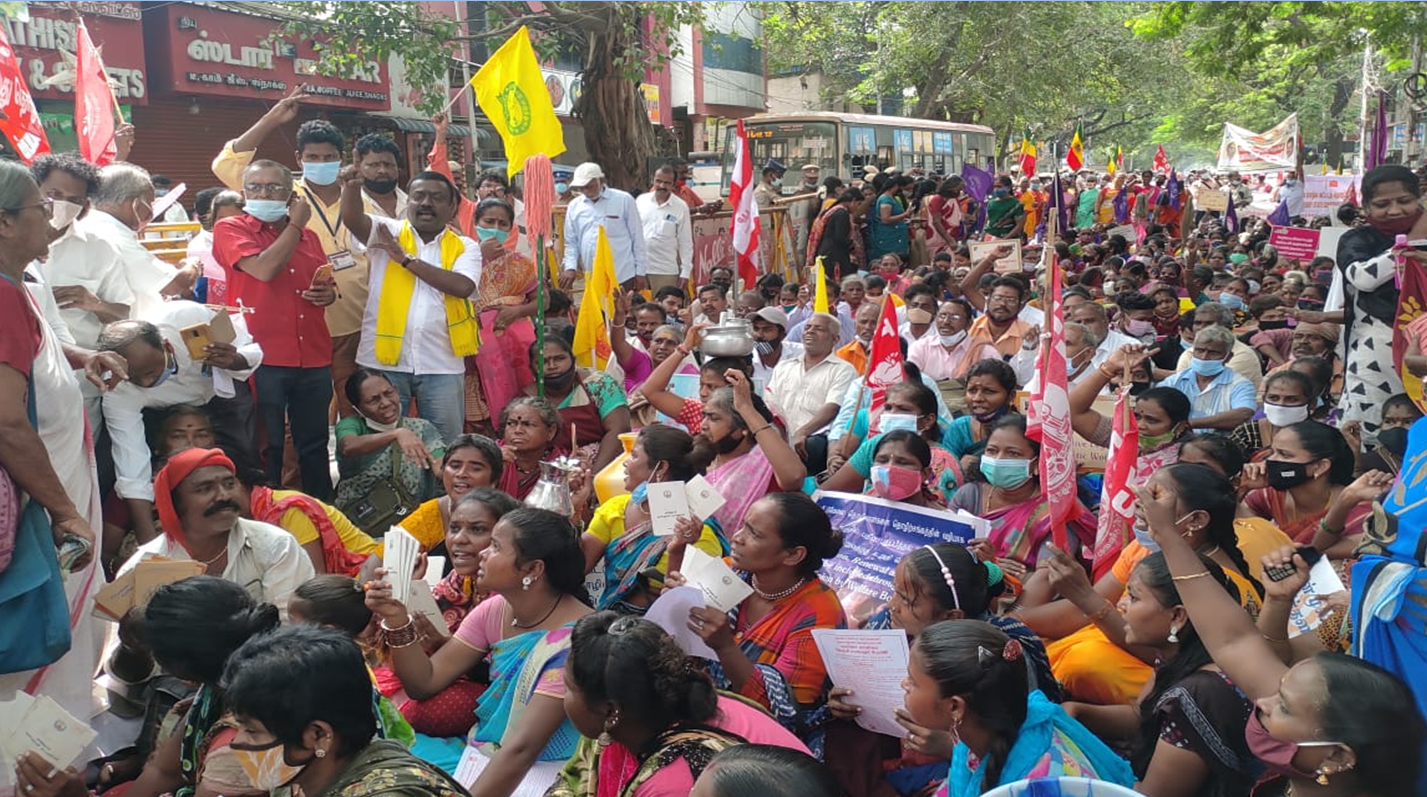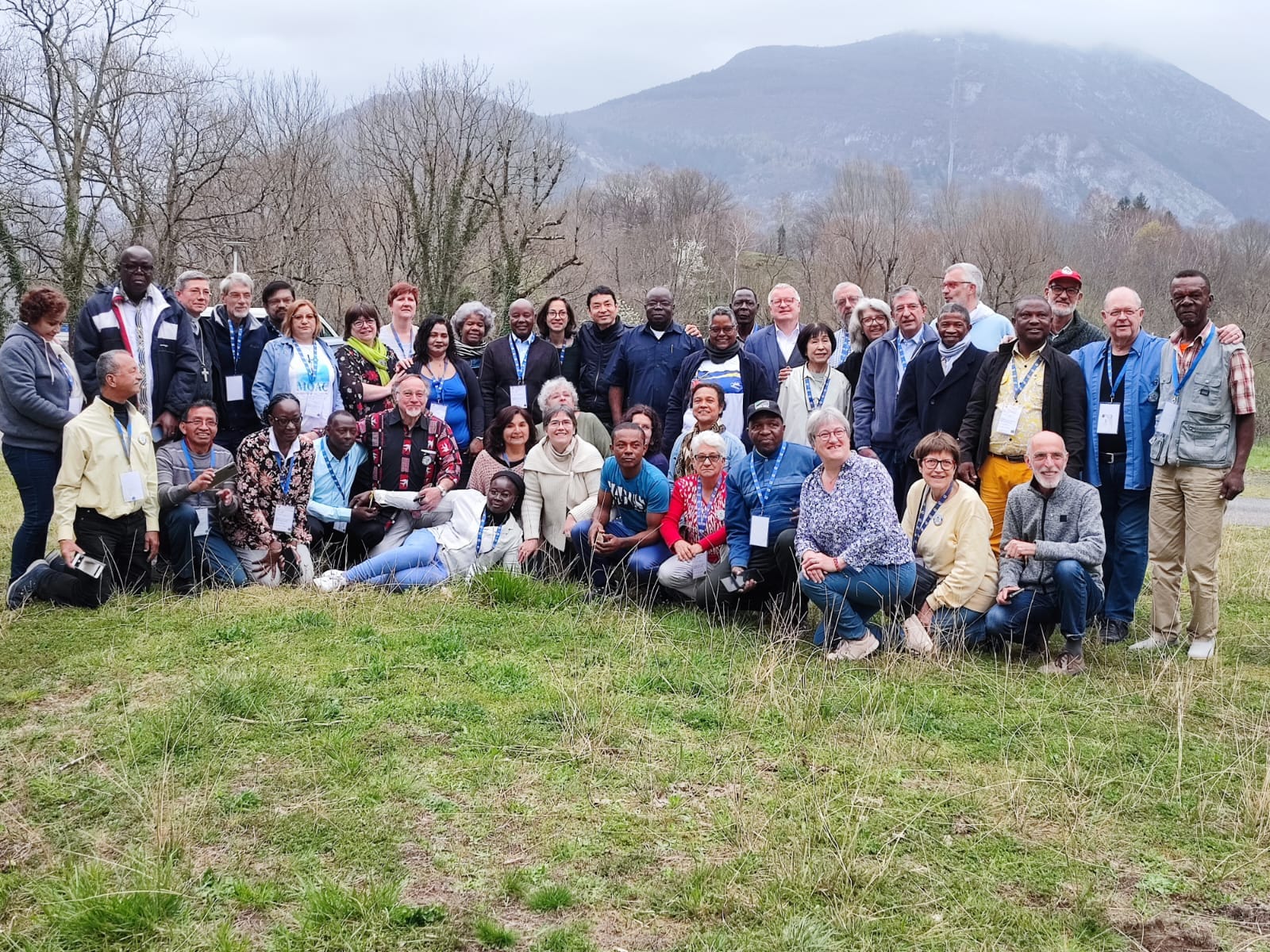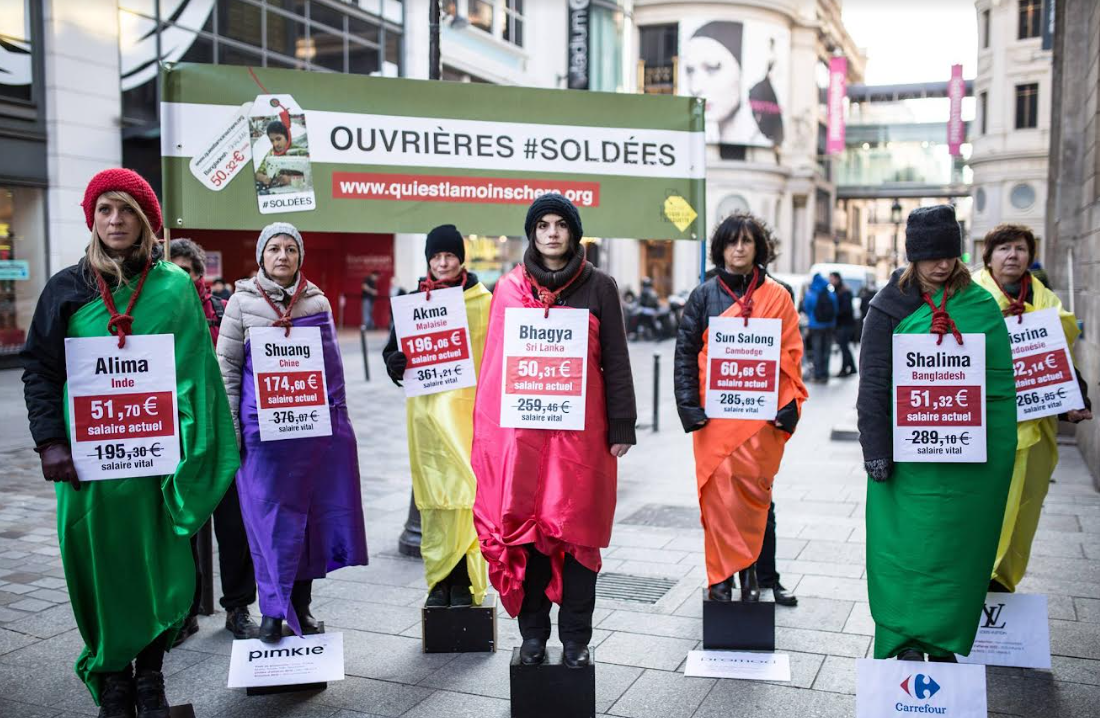The Migration, understood here, as "the movement of people from one place to another to settle in a new place[1]," is a natural phenomenon that has existed since the beginning of time. Nevertheless, the dramatic increase in the number of asylum seekers that the world is experiencing today underscores the catastrophic living conditions of our time. Indeed, "migrants often flee situations of oppression, abuse, insecurity, discrimination, and lack of development prospects”[2].
On International Migrants Day, the member movements of the WMCW reflect on the situation of migrant workers. For this year 2024, our reflections and actions proposed by the LOAC Maurice movement focus on the living and working conditions of migrants on the island.
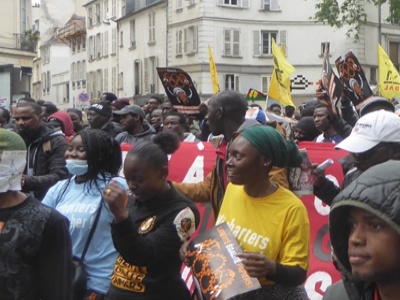
A group of migrant workers takes part in the May 1, 2024 demonstration in the streets of Paris
Republic of Mauritius is a settlement country with its diverse population from Europe, Africa, Madagascar, Asia and China. Mauritians carry with them a history of colonialism, slavery and indentured servitude[3]. The country was built on migration and this phenomenon continues to this day, in various forms...
It is challenging to determine the exact number of migrants in Mauritius! This is because temporary or long-term settlement in the country is managed by different entities without any real coordination: the Ministry of Labor, the Ministry of Education, the Board of Investment, the Prime Minister's Office and more. Furthermore, when it comes to this migratory phenomenon, the common language speaks volumes: "expatriates" for those from developed countries and "migrants" for those from Third World countries...
Until recently, the traditional market for migrants was Europe. This was for business opportunities, a different way of life, or retirement in the tropics... Since the end of apartheid, large numbers of South Africans have settled on the west coast, often in gated communities.
More recently, other forms of migration have emerged. On the one hand, those who come to earn a living because life is hardest at home-such as Bangladeshis and Madagascans... On the other hand, there are students who take advantage of the many branches of foreign universities, as well as the 120 scholarships that the Mauritian government offers each year.
At the same time, there is a certain desperation among young people who leave for other climes. Canada, with its diverse job opportunities, is the El Dorado these days. The exodus also continues among young people of Chagossian descent, now British subjects. The young people who leave to study do not want to return to the country because they believe that meritocracy is being undermined and democracy is being eroded day by day. Thus, in 56 years of independence, two families (except for a little less than two years), the Ramgoolams and the Jugnauths, fathers passing the torch to sons... have been responsible for the political leadership of the country.
Migrants - in this case "expats" - bring valuable contributions to the country such as skills, openness to the world, and partnerships... However, it can be difficult for the average citizen to see it that way. Their presence, with its far greater purchasing power, has led to an inflationary rise in real estate prices and the monopolization of the best locations. There are places where luxury rubs shoulders with the most abject poverty, generating a xenophobia that expresses itself mainly through social networks...
Poor foreigners who come here to work hoping for a better life for their families, also face xenophobia. Bangladeshis, Madagascans, Nepalese, and Africans working in hotels, supermarkets, gas stations, bakeries, construction and security, language and cultural barriers often lead to misunderstanding and friction. They are accused of "taking the place of Mauritians", breaking labor laws, which Mauritians see as docility, whereas for them, it is more a question of self-sacrifice and family survival.
The Republic of Mauritius has always relied on foreign workers. In the years 1975/1990, to support the free trade zone and textile exports, the Chinese filled labor demands. They lived in dormitories, on the margins of society. Today, many of these foreign workers live in shared housing, right in the heart of our cities and villages; they mingle in everyday life and are visibly at the service of local society, causing friction in relationships...
On the political front, any citizen of a Commonwealth country who has lived in Mauritius for five years has the right to vote. The presence of Bangladeshis in the last elections was perceived by some as rigging and by others as an injustice, since the diaspora was excluded.
The Catholic Church, for its part, has shown concern to the situation of migrants. Sunday Masses are held monthly in some of the most densely populated parishes in the north, and in Grand-Baie and Flic-en-Flac on the west coast. Since 2021, Cardinal Maurice Piat, then Bishop of the Diocese of Port-Louis, has created a Pastoral of Migrants, headed by Josian Labonté, a permanent deacon, as a nucleus of reflection, advocacy and action. The headquarters of this pastoral is located in Ste-Anne, Rose-Hill.
It is said that the world is a global village... And the Republic of Mauritius cannot remain on the sidelines. The influx of foreigners will continue to increase and the present government is in line with this logic in view of the falling birth rate, the emigration of young people and the economic and developmental needs. It remains to be seen who and how will ensure the full integration of all, the harmonization of relations and coexistence in our 1,862 square kilometers... This question concerns us, members of the World Movement of Christian Workers, and calls us to work to make every human being, man, woman and child, a brother or sister with the same rights and the same opportunities.
Message written by LOAC Maurice.
-------------------------------------------------------------------------------------------------------
[1] European Parliament, 2020
[2] Pope Francis' message for the 110th International Day of Migrants and Refugees 2024
[3] Contracts that succeeded slavery, which the indentured servants could not undo and which benefited the owners.




